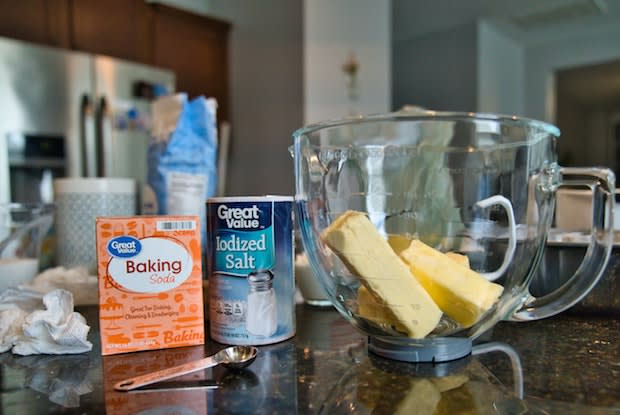Table of Contents
VII. Do NOT Lie Down After Eating!
What’s the Deal with GERD?
Many people may think of acid reflux as a common ailment that can be ignored. However, for those who experience frequent acid reflux (more than twice a week), they may have a serious condition called gastroesophageal reflux disorder (GERD). If this condition is not treated with antacids or more powerful prescription medications like Prilosec or Nexium, it can lead to tissue damage in the esophagus and cause many painful complications.
Acid reflux or acid regurgitation occurs when contents from the stomach move up into the esophagus. The stomach contents may do this because of a malfunction in the lower esophageal sphincter (LES). Usually, the LES relaxes and opens when you swallow and closes tightly afterward. But in some cases, the LES is too loose and does not close properly, allowing stomach acid to leak back up into the esophagus. [1]
Symptoms of GERD may include:
- Heartburn (most common symptom)
- Chronic cough or asthma
- Difficulty swallowing
- Sour or bitter taste in the mouth
GERD can occur in infants as well as adults. A myriad of factors can cause GERD, but you are at higher risk for GERD if you are overweight or pregnant. If you have a connective tissue disorder or hiatal hernia, you are also at risk for GERD. Luckily, there are several home remedies and lifestyle changes people can make to improve their GERD symptoms. Read on to learn more. [1] Because GERD is a gastrointestinal disorder, your diet plays a significant role. What you put in your stomach is vastly important to the severity of your GERD. High fat and sugary foods, as well as acidic beverages, can trigger GERD symptoms. Alkaline, or low-acid, foods are better to eat if you have chronic acid reflux. Some fruits are relatively alkaline and can provide healthier sugars than processed fructose products. Bananas have natural antacid properties that can counteract acid reflux. Eating a slice of apple before bed may also offset any nighttime GERD symptoms. Honeydew, cantaloupe, and watermelon are safe to eat with GERD. You should avoid acidic fruits like oranges, grapefruit, and pineapple. [2] Ginger Tea: Ginger is known for its stomach-settling capabilities. Ginger can help common stomach ache, nausea, and even acid reflux symptoms. This ancient cure-all is a natural anti-inflammatory. To get the most effect out of your ginger, simmer slices of the root in water for 30 minutes. Then drink this tea before a meal to maximize its impact. [3] Chamomile Tea: Chamomile tea works to balance the acidity levels in the stomach. Chamomile can reduce stress levels, which is sometimes a contributing factor to heartburn. To make a chamomile tea, boil water and stir in chamomile petals and simmer for 45 seconds. Strain the petals out and pour into a mug. To get the most benefit, drink this tea 30 minutes to an hour before bedtime. [2] Mustard has long been a natural heartburn remedy. Mustard contains alkaline substances like vinegar, which neutralizes stomach acid and prevents it from bubbling up into the esophagus. Some may consider mustard spicy and, therefore, a heartburn trigger, but mustard is a weak acid. Mustard is full of minerals, and these ingredients can help reduce symptoms of GERD. When you feel a bout of heartburn coming on, try taking one teaspoon of straight mustard. [4] Some GERD sufferers find chewing gum helpful in relieving symptoms. A study by the Journal of Dental Research found that chewing sugar-free gum for 30 minutes after eating can help reduce acid reflux. Gum is beneficial because it stimulates the salivary glands and increases saliva production. More saliva helps wash away excess acid in the esophagus, reducing acid reflux. [2] Like mustard, baking soda is a neutralizing substance. Baking soda neutralizes stomach acid so that it will not cause regurgitation of food into the esophagus. Baking soda works in two ways because even if it does not entirely prevent acid reflux, it can prevent the burning sensation associated with heartburn. To consume baking soda, mix one teaspoon with 8 ounces of water and drink all of it. Do not consume more than seven glasses a day. This treatment is helpful, but it is not recommended to use for more than a week. Baking soda has a high salt content and can cause side effects like swelling or nausea. [2] If you have chronic acid reflux, it is vital not to lie down after eating a meal. When you eat and lie flat, the contents of your stomach can easily be pushed back up. Pressure is also put on your esophageal sphincter, which can cause it to open when it is not supposed to. When you remain upright after eating, gravity allows food to stay down in the stomach. Your GERD can be significantly improved if you plan your resting time to avoid laying down for three to four hours after eating. If you must lie down, wedge a pillow under you to keep your head and esophagus elevated. [2] These home remedies and lifestyle changes can improve your symptoms, but they may not always be enough. If your chronic acid reflux remains persistent, you can also implement over-the-counter antacids or prescription medications like Prilosec or Nexium. These drugs are proton pump inhibitors that can help heal acid damage to the stomach, prevent ulcers, and prevent cancer of the esophagus. Nexium works by decreasing the amount of acid your stomach makes. These drugs also help relieve symptoms such as heartburn, difficulty swallowing, and persistent cough. Talk to your doctor to determine the best treatment for you. [5] The content in this article is intended for informational purposes only. This website does not provide medical advice. In all circumstances, you should always seek the advice of your physician and/or other qualified health professionals(s) for drug, medical condition, or treatment advice. The content provided on this website is not a substitute for professional medical advice, diagnosis or treatment.
Add Fruit to Your Diet
Teas

Mustard
Gum
Baking Soda

Do NOT Lie Down After Eating!
Medications
